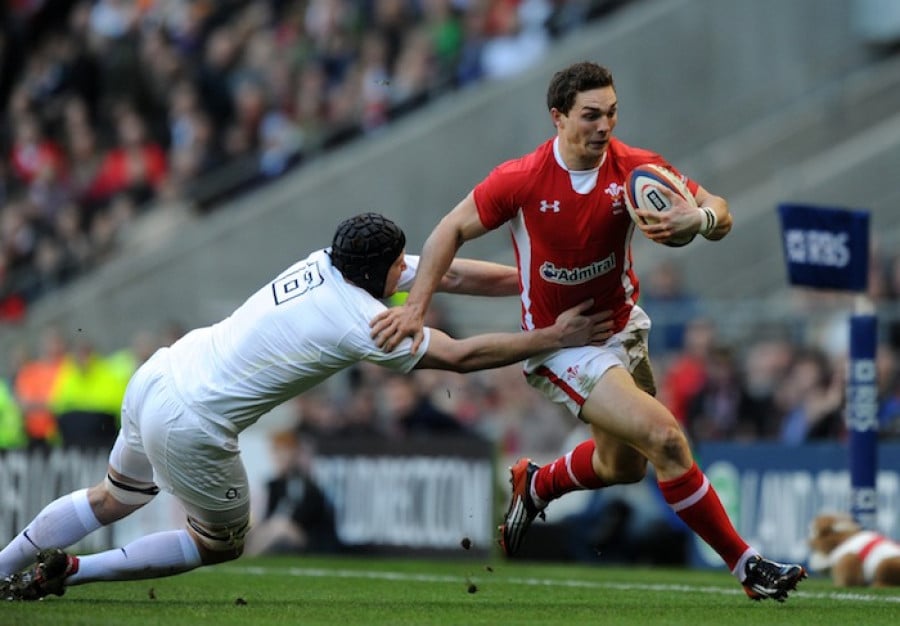The curious case of George North part 1 - global release periods and Premier Rugby policy

In this two part article, Sam Vitty, analyses the recent George North case and considers the legal implications of Northamption Saints Rugby Club allowing North to represent Wales outside of the designated IRB windows.
Introduction
There are a number of issues currently dominating Northern Hemisphere rugby union including: which European competition English clubs will be playing in Europe next season, the exodus of Welsh players from the Welsh Regions and the 'manipulation' and use of the salary cap. A further issue has recently arisen involving George North and the fine that has been imposed on his club, Northampton Saints, by Premier Rugby Limited1, for allowing North to represent Wales outside of the designated IRB windows.
This article will look at the legal implications of a breach of such a policy; but also the implications of Northampton being compelled to release North for international duty in accordance with a clause in his contract agreed when North signed in the summer of 2013. The interest in the case will have reverberated across the Aviva English Premiership domestic club rugby competition because this was the first time such a matter had arisen and the fact Northampton were very open in admitting the existence of the clause in breach of a policy agreed by all 12 Premiership clubs.
George North, a Welsh Rugby Union player currently playing for Northampton Saints in the Aviva Premiership, is widely regarded as one of the leading current players in world rugby, indeed some would go as far as to describe him as one of the few genuine world superstars following his performances in last years victorious British and Irish Lions tour to Australia. Being just 21 years old, 6 foot 4 inches tall, strong and fast, he is a winger of similar dimensions to New Zealand rugby legend Jonah Lomu and an integral part of the Welsh squad.
In 2012, North was coming into the final year of his contract with Llanelli Scarlets with no sign of an agreement being reached to extend. In previous years, the Welsh Rugby Union have sought to assist their Regions financially in an attempt to keep their best players playing in Wales. However, this has become increasingly difficult with the financial muscle of clubs in other countries, especially France, and interest in recruiting North away from Wales was high.
The recent exodus of Welsh players to France was of particular concern for Llanelli who, when it became clear North would not agree a new contract, decided it made more economic sense to release him a year early, in return for a transfer fee rather than retain him for another year and lose him for free. Similar to the Bosman ruling in football, Rugby Union players nearing the end of their club contracts are entitled to negotiate moves to other clubs for which the club will usually not receive a fee. There are exceptions and protections in place for younger footballers but this has not extended to Rugby Union. However, releasing the player early will in some cases allow compensation to be paid to the club when the player subsequently moves to another club.
North had a strong bargaining position from which to negotiate his departure from Llanelli and finally, in April 2013, it was announced that he had agreed a move to Northampton Saints for a salary estimated to be £250,000 per year (with a fee of £250,000 paid to Llanelli for releasing the player a year early).2 Northampton Saints were subject to a much tighter salary cap than French clubs3, who have access to a €10m (£8.6m) budget, whilst English clubs have just £4.26m with one excluded player and as such, were limited in what they could offer North.4 Especially when players such as Courtney Lawes, Dylan Hartley and Ben Foden were already on the payroll and North was being joined as a new recruit by Alex Corbisiero who had agreed to move to Northampton from London Irish.
As a result of Northampton not being able to necessarily match the salary on offer from some French clubs, North negotiated a clause in his contract which is understood to state that, if selected to play for Wales, he could be released, irrespective of whether that release took place during a Global Release Period or not.
Global release periods and Premier Rugby policy
To continue reading or watching login or register here
Already a member? Sign in
Get access to all of the expert analysis and commentary at LawInSport including articles, webinars, conference videos and podcast transcripts. Find out more here.
- Tags: Employment Law | England | International Rugby Board (IRB) | Rugby | Rugby Football Union (RFU) | Wales
Related Articles
- Legal issues surrounding the English and French rugby clubs dispute with the ERC
- Third party ownership – to ban or not to ban?
- How the perceived risk of litigation affects the rules of rugby
- Bullying in professional sports: Adapting to an evolving legal landscape and mitigating risk
- The curious case of George North part 2 - player power and terms of contracts
Written by
Sam Vitty
Sam Vitty is a Solicitor in the Dispute Resolution Department of Morrisons Solicitors LLP where he provides advice in relation to contentious and regulatory matters to clients in a number of different areas.

 Global Summit 2024
Global Summit 2024